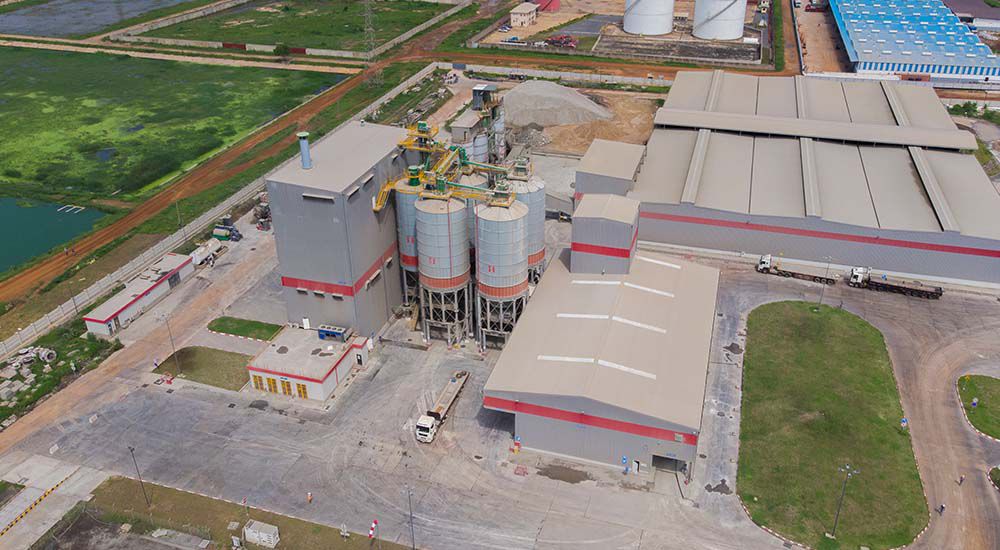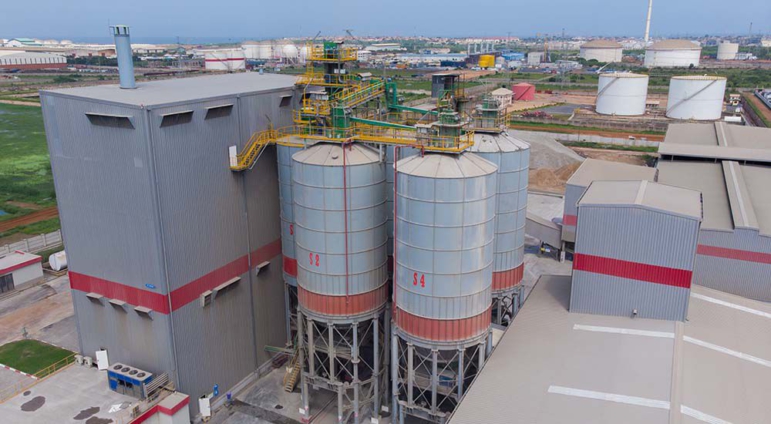CBI Ghana Limited, producers of Supacem Cement, has signed an $80million contract to construct the world’s largest Calcined Clay Cement plant, a 405,000-ton-per-annum plant at the Tema Free Zones Enclave.
The plant will use new technology to substitute 20% of clinker, the raw material used to make cement, with environmentally-friendly clay from Ghana.
The operation of the Calcined Clay Cement plant will have a profound impact on the Ghanaian economy.
By partially substituting imported clinker for Ghanaian clay, CBI will improve the value-for-money of its cement products for its customers by exceeding Ghanaian cement quality standards, while lowering raw material, energy, and fuel costs.
Lower imports will also translate to reduced local demand for US dollars and help decrease pressure on US dollar exchange rates.

In addition, the two-year construction period and the long-term operation of the Calcined Clay Cement plant will create hundreds of low- and high-skilled jobs for Ghanaians.
Substituting clinker with calcined clay in cement production will have immense environmental benefits.
Globally, cement production accounts for about 7.5% of CO2 emissions. Using calcined clay to minimise the need for traditional, carbon-intensive clinker is a major advancement toward eliminating the negative environmental footprint of cement production.
“Ghana is the perfect location for using clay as an environmentally-friendly alternative to clinker,” said Frédéric Albrecht, CEO of CBI Ghana Ltd.
“West Africa is traditionally a clinker- and cement-importing region due to the lack of suitable limestone reserves. Developing countries, with their young populations and a growing need for infrastructure and housing, represent the future in cement consumption. Calcined clay cement are the most sustainable alternative to traditional clinker-based cement.”
CBI Ghana’s $80-million investment into its Calcined Clay Cement plant brings the company’s investments in the Ghanaian cement industry to $130 million.
The new project is financed by an international consortium including its parent company F. Scott, Société Générale, Norfund, the Norwegian Investment Fund for Developing Countries, IFU, the Danish Investment Fund for Developing Countries, and EKF Denmark, with equipment supplied by FLSmidth, the world leader in cement manufacturing equipment.
Latest Stories
-
UHAS project revives fight against neglected tropical diseases
17 seconds -
You’re a ‘small boy’ in NPP; tone down your utterances – former MP slams Nana B
1 minute -
If the people who voted for you say E-Levy won’t help, why force it? – Eugene Antwi on NPP’s 2024 defeat
13 minutes -
Establish Sovereign Wealth Funds amid gold boom – Ofosu-Dorte advises gov’t
16 minutes -
Barcelona eye Thomas Partey as key midfield reinforcement
17 minutes -
Rehoboth Housing denies power theft allegations as ECG restores electricity to Ayimensah-Danfa Estate
28 minutes -
2025 GSTEP Challenge: Exhibition & Awards ceremony set for July, 16 and 17, 2025
44 minutes -
Education Minister urges WAEC honourees to ‘dream big’ but uphold integrity
44 minutes -
Gov’t set to present Ghana Scholarship Authority Bill to Parliament – Haruna Iddrisu
46 minutes -
GRNMA raises concern over postponed meeting with Parliament, demands urgent action on agreements
1 hour -
Restore academic calendar – Education Minister urges GES and WAEC
1 hour -
Haruna Iddrisu hails WAEC distinction awardees as models of excellence
1 hour -
Mahama to sponsor top WASSCE candidates with GETFund scholarships – says Education Minister
1 hour -
University of Ghana dispels rumours of event cancellations amid COVID-19 resurgence
1 hour -
Dzifa Gomashie leads presidential mission to honour highlife legend Agya Koo Nimo
2 hours

